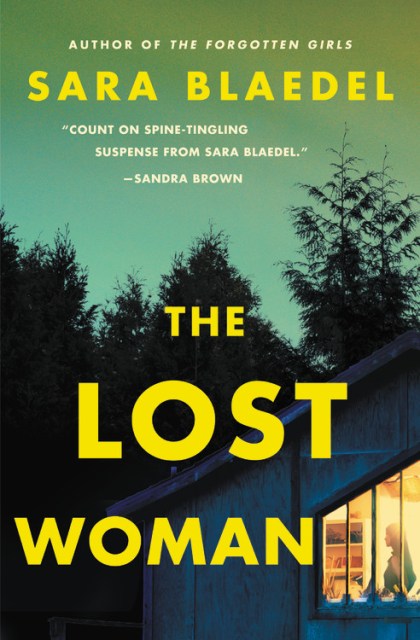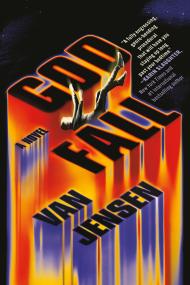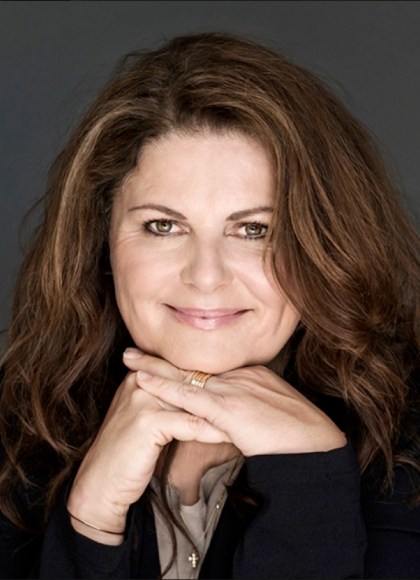By clicking “Accept,” you agree to the use of cookies and similar technologies on your device as set forth in our Cookie Policy and our Privacy Policy. Please note that certain cookies are essential for this website to function properly and do not require user consent to be deployed.
The Lost Woman
Contributors
By Sara Blaedel
Formats and Prices
- On Sale
- Sep 12, 2017
- Page Count
- 352 pages
- Publisher
- Grand Central Publishing
- ISBN-13
- 9781455541065
Price
$14.99Price
$19.49 CADFormat
Format:
- Trade Paperback $14.99 $19.49 CAD
- ebook $7.99 $9.99 CAD
- Audiobook Download (Unabridged)
This item is a preorder. Your payment method will be charged immediately, and the product is expected to ship on or around September 12, 2017. This date is subject to change due to shipping delays beyond our control.
Buy from Other Retailers:
Following the incredible success of Sara Blaedel’s #1 international bestsellers The Forgotten Girls and The Killing Forest, Louise Rick–head of the police department’s elite Special Search Agency charged with missing persons cases–returns in Sara’s latest twist-filled suspense novel . . .
A housewife is the target of a shocking, methodical killing. Shot with a hunting rifle through her kitchen window, the woman is dead before she hits the ground.
Though murdered in England, it turns out that the woman, Sofie Parker, is actually a Danish citizen who’s been on the Missing Persons list for almost two decades–so Louise Rick is called on to the case. Then, in an unexpected twist, the police discover that Sofie had been reported missing eighteen years ago by none other than Eik, Louise Rick’s police colleague and lover.
Impulsive as ever, Eik rushes to England, and ends up in jail on suspicion of Sofie’s murder. Completely blindsided by Eik’s connection to the case, Louise is thoroughly unsettled and sick with worry, yet she must set aside her own emotional turmoil if she hopes to find the killer in what will become her most controversial case yet…
“Crime-writer superstar Sara Blaedel’s great skill is in weaving a heartbreaking social history into an edge-of-your-chair thriller while at the same time creating a detective who’s as emotionally rich and real as a close friend.” — Oprah.com
“One of the best I’ve come across.” — Michael Connelly
“Sara Blaedel is a force to be reckoned with. She’s a remarkable crime writer who time and again delivers a solid, engaging story that any reader in the world can enjoy.” — Karin Slaughter
“Leads to…that gray territory where compassion can become a crime and kindness can lead to coldblooded murder.” — New York Times Book Review
A housewife is the target of a shocking, methodical killing. Shot with a hunting rifle through her kitchen window, the woman is dead before she hits the ground.
Though murdered in England, it turns out that the woman, Sofie Parker, is actually a Danish citizen who’s been on the Missing Persons list for almost two decades–so Louise Rick is called on to the case. Then, in an unexpected twist, the police discover that Sofie had been reported missing eighteen years ago by none other than Eik, Louise Rick’s police colleague and lover.
Impulsive as ever, Eik rushes to England, and ends up in jail on suspicion of Sofie’s murder. Completely blindsided by Eik’s connection to the case, Louise is thoroughly unsettled and sick with worry, yet she must set aside her own emotional turmoil if she hopes to find the killer in what will become her most controversial case yet…
“Crime-writer superstar Sara Blaedel’s great skill is in weaving a heartbreaking social history into an edge-of-your-chair thriller while at the same time creating a detective who’s as emotionally rich and real as a close friend.” — Oprah.com
“One of the best I’ve come across.” — Michael Connelly
“Sara Blaedel is a force to be reckoned with. She’s a remarkable crime writer who time and again delivers a solid, engaging story that any reader in the world can enjoy.” — Karin Slaughter
“Leads to…that gray territory where compassion can become a crime and kindness can lead to coldblooded murder.” — New York Times Book Review
Series:
-
"Crime-writer superstar Sara Blaedel's great skill is in weaving a heartbreaking social history into an edge-of-your-chair thriller while at the same time creating a detective who's as emotionally rich and real as a close friend."Oprah.com
-
"One of the best I've come across."Michael Connelly
-
"Sara Blaedel is a force to be reckoned with. She's a remarkable crime writer who time and again delivers a solid, engaging story that any reader in the world can enjoy."Karin Slaughter
-
"Blaedel solidifies once more why her novels are as much finely drawn character studies as tightly plotted procedurals, always landing with a punch to the gut and the heart."Library Journal (STARRED REVIEW)
-
"Sara Blaedel is a literary force of nature....Blaedel strikes a fine and delicate balance between the personal and the professional in THE LOST WOMAN, as she has done with the other books in this wonderful series. ...Those who can't get enough of finely tuned mysteries...will find this book and this author particularly riveting."BookReporter.com
-
"Long-held secrets and surprising connections rock Inspector Louise Rick's world in Blaedel's latest crime thriller. Confused and hurt, Louise persists in investigating a complex murder despite the mounting personal ramifications. The limits of loyalty and trust, and the complexities of grief, are central to this taut thriller's resolution. A rich cast of supporting characters balances the bleakness of the crimes."RT Book Reviews (4 STARS)
-
"Leads to...that gray territory where compassion can become a crime and kindness can lead to coldblooded murder."New York Times Book Review
-
"Blaedel, Denmark's most popular author, is known for her dark mysteries, and she examines the controversial social issue at the heart of this novel, but ends on a surprisingly light note. Another winner from Blaedel."Booklist
-
"Engrossing."Toronto Star
-
"Deliciously dark...[A] great tale!"Suspense Magazine
-
"Worth the wait."Winnipeg Free Press
-
PRAISE FOR THE LOUISE RICK SERIES:Booklist on The Killing Forest
"Another suspenseful, skillfully wrought entry." -
"Engrossing...Blaedel nicely balances the twisted relationships of the cult members with the true friendships of Louise, Camilla, and their circle."Publishers Weekly on The Killing Forest
-
"Blaedel delivers another thrilling novel...Twists and turns will have readers on the edge of their seats waiting to see what happens next."RT Book Reviews on The Killing Forest
-
"For readers who gorge on captivating characters and chilling suspense, THE FORGOTTEN GIRLS is a tantalizing treat. Enjoy yourself, America."Sandra Brown on The Forgotten Girls
-
"Sara Blædel is at the top of her game. Louise Rick is a character who will have readers coming back for more."Camilla Läckberg
-
"Crackling with suspense, atmosphere, and drama, THE FORGOTTEN GIRLS is simply stellar crime fiction. I loved spending time with the tough, smart, and all-too-human heroine Louise Rick--and I can't wait to see her again."Lisa Unger
-
"Will push you to the edge of your seat [then] knock you right off....A smashing success."BookReporter on The Killing Forest
-
"This is a standout book that will only solidify the author's well-respected standing in crime fiction. Blaedel drops clues that will leave readers guessing right up to the reveal. Each new lead opens an array of possibilities, and putting the book down became a feat this reviewer was unable to achieve. Based on the history of treating the disabled, the story is both horrifying and all-to-real. Even the villains have nuanced and sympathetic motives."RT Times on The Forgotten Girls - Top Pick **Winner of the Reviewer's Choice Award**
-
"Gripping."Washington Post on The Forgotten Girls
-
"Tautly suspenseful and sociologically fascinating."BookPage on The Forgotten Girls
-
"Tightly knit."Kirkus Reviews on The Forgotten Girls
-
"Chilling...[a] swiftly moving plot and engaging core characters."Publishers Weekly on The Forgotten Girls
-
"Sara Blaedel's THE FORGOTTEN GIRLS is an emotionally complex police-procedural thriller ...With a gripping premise, fast-paced narrative and well-developed characters, THE FORGOTTEN GIRLS is an incredible read."FreshFiction.com
Newsletter Signup
By clicking ‘Sign Up,’ I acknowledge that I have read and agree to Hachette Book Group’s Privacy Policy and Terms of Use
















